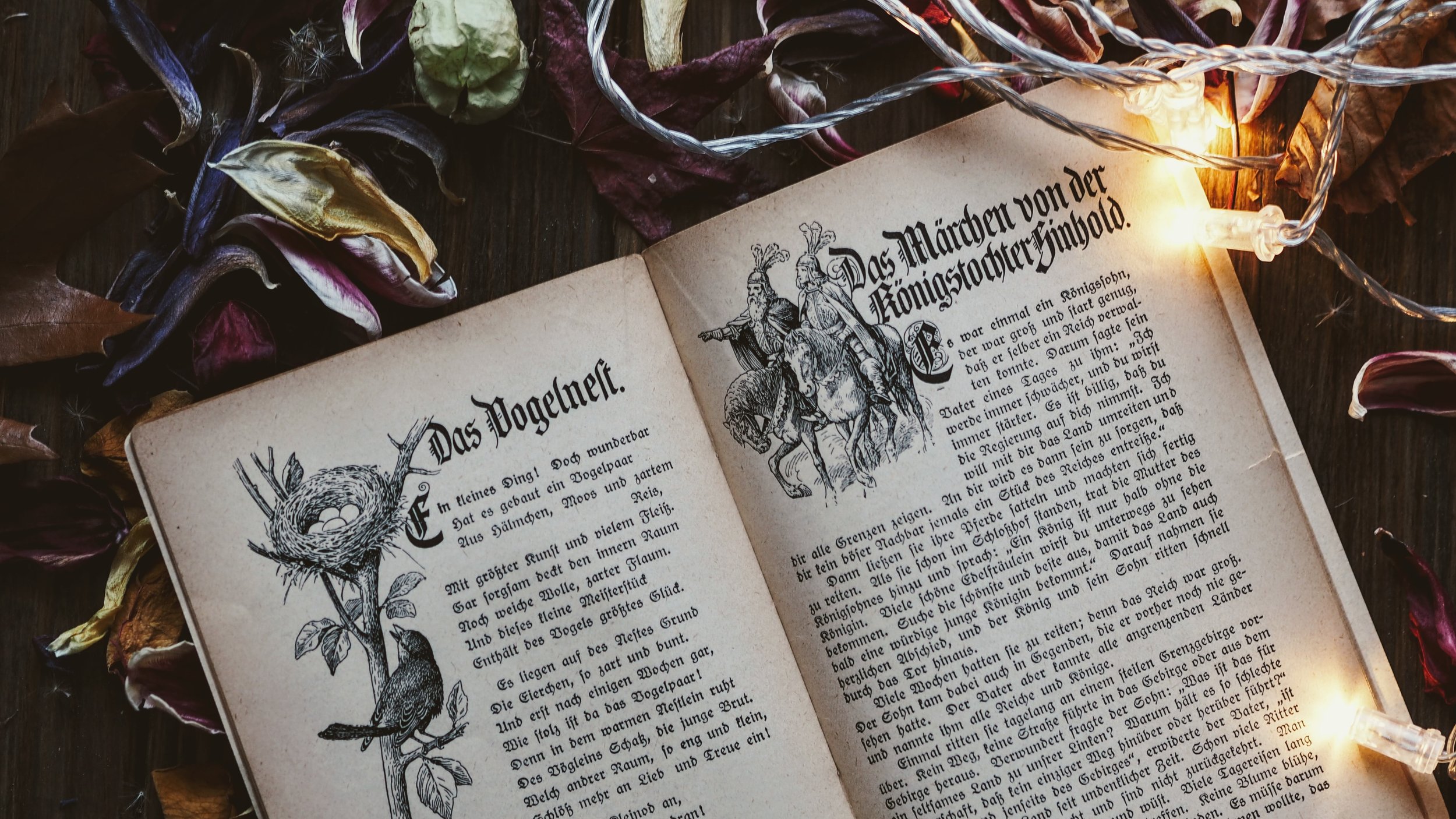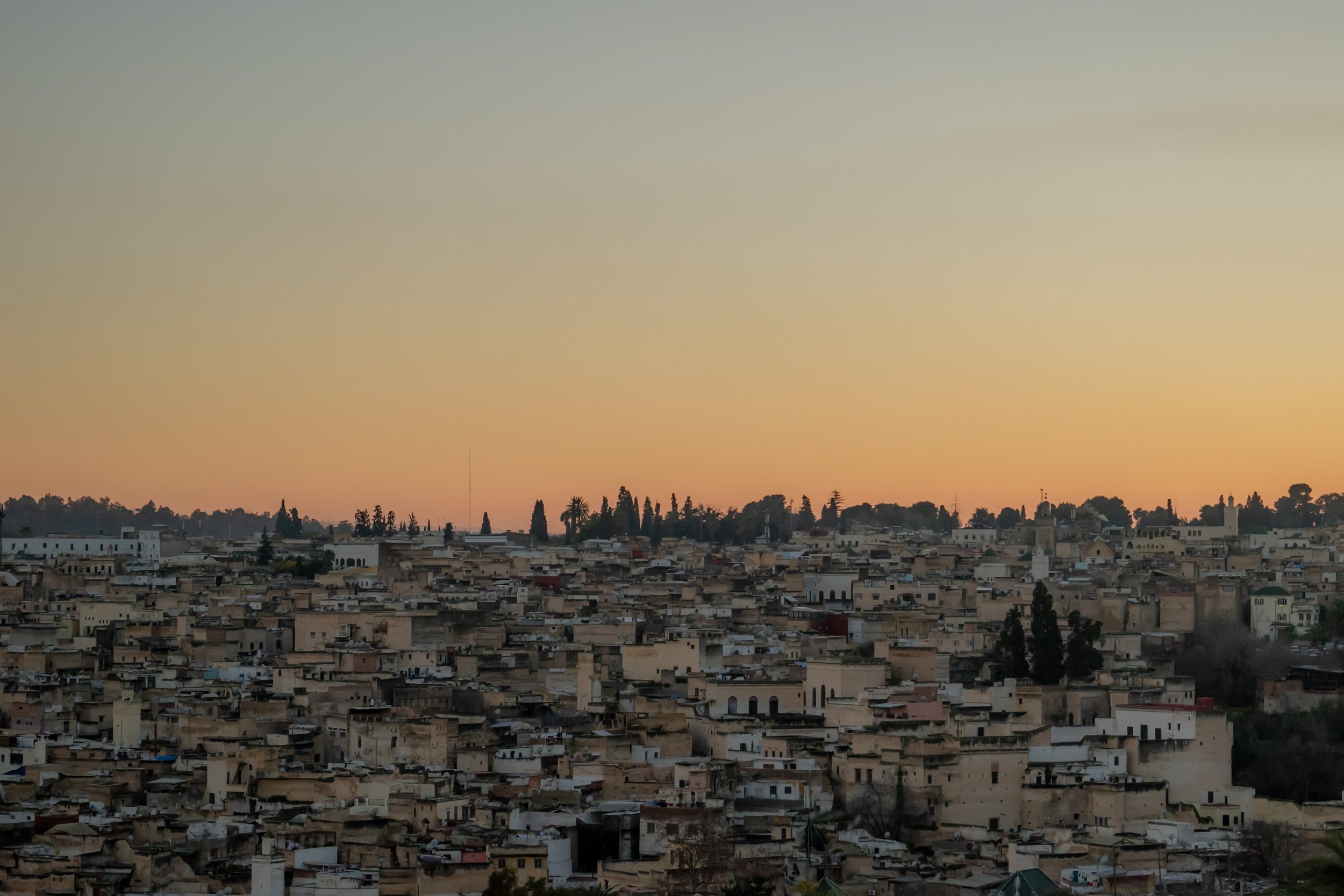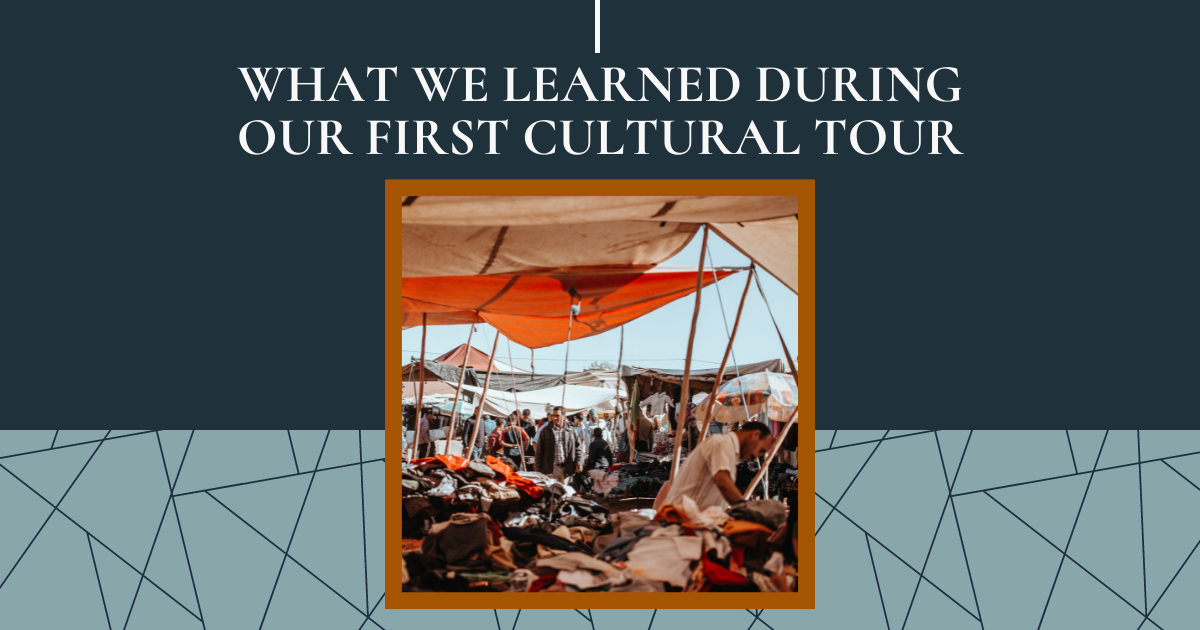Cultural Stories: The Fatal House
William Gudykunst said, “One of the major factors influencing our effectiveness in communicating with people from other cultures is our ability to understand their culture.” Communication is about more than just the words we say; it is about both language and culture, what we communicate through words and actions. Here at Crossroads Cultural Exchange, we believe that we can't separate learning language from learning culture. As one of out teachers says, "Culture is the spirit of a language."
In my first year of learning Moroccan Arabic, I greatly appreciated that my teachers taught me not only grammar and vocabulary, but also cultural proverbs, teachings, and stories. The stories especially taught me things that were under the surface of Moroccan culture. Now, that same teacher who told me that "Culture is the spirit of a language” has shared with a me a book of Moroccan fairy tales, called Tales of Fes, translated by E. Powys Mathers. Reading and reflecting on the fairy tales, myths, folktales, proverbs, and sayings from another culture helps us gain insight into that culture in ways we otherwise may not glean. Let’s look together at one such tale, called The Fatal House, taken from Tales of Fes.
The Fatal House
Once upon a time, there was a man who had two wives, each of whom had given him seven daughters. Fourteen daughters! Not one son! That is an exceptional misfortune! The father had a marked preference for one of his wives, but she was very evil and had no thought but to rid herself of the daughters of her rival.
Now there was a fatal [haunted] house in that city, haunted by the Djinn. One died if one passed the night there. So, having heard of this house, the bad woman persuaded her husband to rent it, and to send the seven daughters of the spurned wife to sleep there one evening. This was done. But these girls were very cunning, as well as being exceedingly virtuous, brave, and well brought up. They were not disturbed by what they thought was going to happen, but only requested their miserable father to buy them brooms and fish, milk and incense.
The house was very dirty, and full of the dry carcasses of men who had perished there; but the seven sisters courageously swept the whole place, and cast milk upon the floor to appease the Djinn, who are very partial to this drink, and burned the incense for the same purpose.
And during this time, one of them lit a fire and began to grill the fish for supper; but suddenly a hand without either arms or body appeared, stretching out to her, while a voice said in gentle supplicating accents: "My sister, give me a fish to eat.”
“With pleasure and good heart, dear friend," answered the cooking girl, without showing any sign of disturbance. "This one is still too hot. It would hurt you. I will cool it."
As soon as the fish had become cool enough, she stretched it out to the hand, and did the same for seven other hands which came, one after the other, to beg for grilled fish.
Then, as night had fallen, the seven sisters lit candles, and sat down at the table, and ate.
Then a Jinni with two noses presented himself, having a candle in his hand; but, instead of being frightened, they welcomed him in friendly fashion, and made him sit beside them, and offered him very sweet tea with mint.
"Do you accept a being with three noses?" cried another Jinni, suddenly appearing.
"Certainly!" they answered. "With heart most friendly and in duty-bound!"
And thereafter successively appeared a Jinni with four, a Jinni with five, a Jinni with six, and a Jinni with seven noses, who were all received most kindly by the sisters.
Then the voice of a little child was hurt weeping, moaning, and saying: “O my sister! O my sister! Fetch me down! Fetch me down!”
The bravest of all took a candle and mounted the staircase leading to the terrace. On the top step lay a great slab of meat, and it was this which was making all the noise. So she took it tenderly in her robe and carried it downstairs.
The Djinn were affected by the good welcome from the seven sisters, and therefore, instead of doing them harm, thanked them for having fed and scented them, for having washed the house, and for having kept them company.
The next day, at dawn, the father came to the fatal house with fourteen bearers, provided with seven planks, to carry away the corpses of his daughters; but, instead of finding them dead, he saw them joyous and in excellent health, and covered with jewels which the grateful Djinn had given them. Therefore he was compelled to dismiss the bearers and took the young girls back home with him.
Who was disappointed? It was the wicked, jealous wife. Seeing the gifts with which her step daughters had been loaded, she wished the same for her daughters, and accused her husband of being very clumsy. Eventually, at her insistence, he led his seven other daughters to the haunted house and left them there alone.
They had asked for fish and milk as the others had, but, since they were negligent and dirty, they had not thought about either brooms or incense. Without tidying at all, they began to prepare their meal; and at once a hand showed itself before the one who was grilling and begged for a fish.
"What horror!" cried the girl, and began to recite the formula of exorcism: ”Bismillah ar-Rahman ar-Raheem. Aouda Billahi mina a-chaytan ar-Rajeem. In the name of God, the Merciful, the Compassionate! I seek protection in God from Satan, the Stoned [Banished] One!"
And she cried to her sisters: "Give me an axe."
But the menacing hand disappeared with no words spoken.
When the Djinn with two, three, four, five, six, and seven noses came to ask to share their feast, instead of receiving them cordially as the other sisters had done, these sisters refused them company, and not without heaping curses and mockeries upon them.
When the voice of the child cried from the terrace: "Fetch me down!" Not one of them went to the help of the enchanted meat, but each one cried: “Allah y enaalak. God damn you!"
When the father arrived the next morning at dawn, this time without either bearers or planks, he found seven corpses in the fatal house.
He repented bitterly of his mistake, and ceased to love the wicked woman who had caused this calamity through her evil intention with regard to her step daughters.
For an evil intention is everything.
Questions for Reflection:
1. Moroccan society is a community that excepts polygamy as a way of living. Do you believe that polygamy can bring peace and coexistence to such a society that legitimizes this way of living?
2. In general, the Moroccan family is large because there are many children in each family. For instance, the man in this tale has fourteen daughters, seven from each wife. In your opinion, why do Moroccan families tend to be so large? What size family is most common in your society? Would you prefer a small family or a large family?
3. The number “7” is significant and important in Islamic culture in general, and especially in Morocco.For example, God created the universe in six days and was seated on the throne in the seventh day. God created seven skies and divided the week into seven days as well. Moreover, people in Marrakech, Morocco used to visit the tombs of seven saints for their blessings. Is there a number that is significant in your culture?
4. There is a similarity between this tale and the Cinderella tale when it comes to the evil stepmother who is present in both stories. Do you see other similarities between these two tales?
5. This story contains a theme of cleanliness. What do you think this cleanliness means in Moroccan culture? Where else do you see cleanliness in Moroccan culture? What does your culture say about cleanliness?
6. Do you notice any other cultural elements that stand out to you? What questions does this story raise that you would like to discuss with a Moroccan cultural expert?
Do you enjoy this type of cultural exploration? You may enjoy one of our Moroccan cultural workshops, available online or at our center in Fes.














Morocco is a very unique country for several reasons. The first is its strategic location in the northwest of the continent of Africa, just 14 kilometers south of Europe. This beautiful country is bordered by the Mediterranean Sea in the North, the Atlantic Ocean in the West, Algeria to the East, and Mauritania to the South. For this reason, Morocco is a crossroads where cultures, civilizations, and ethnicities meet.